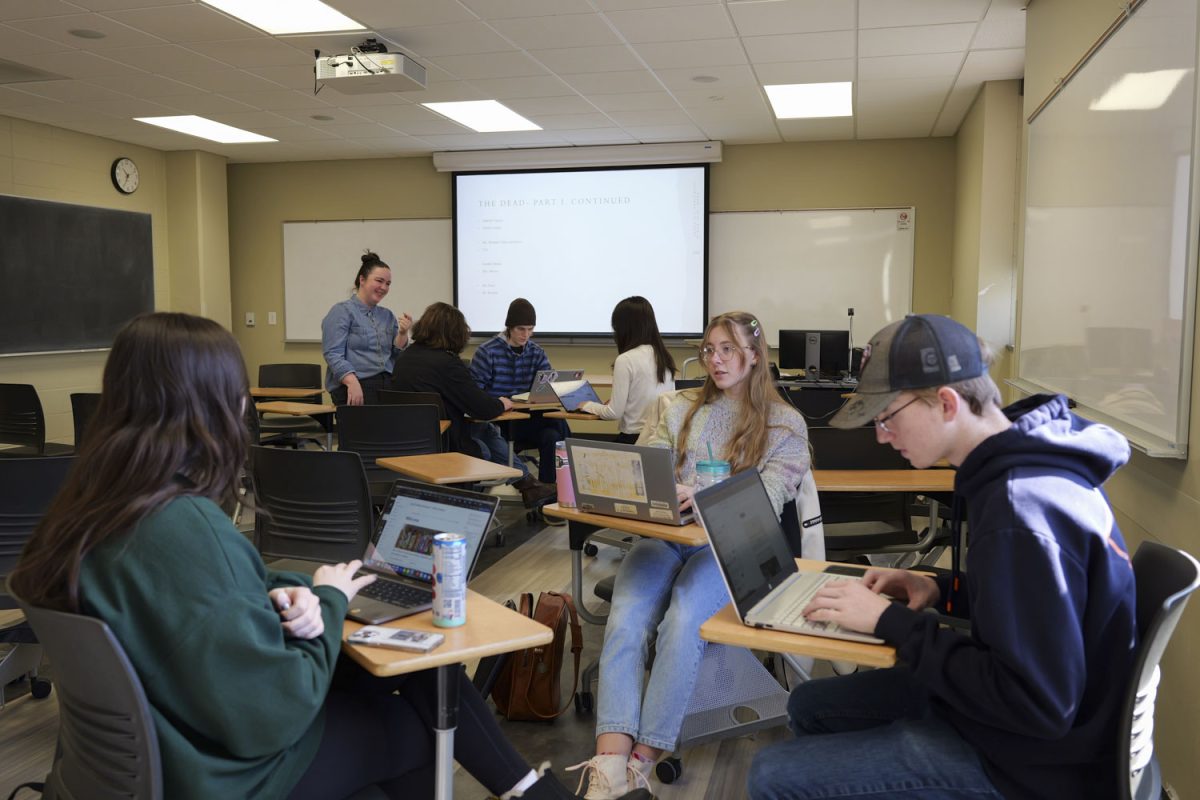Since its launch to date, enrollment in the first-of-its-kind University of Iowa bachelor’s degree in translation continues to gain popularity.
The number of students enrolled in the fall of 2022 went from 18 students in its first year to 23 current students. The UI received a grant for $1 million from the U.S. Department of Education to start the program, Aron Aji, director of the UI Master of Fine Arts in Literary Translation program and associate professor, said.
Aji said students had an immediate interest in 2022 to enroll in the program, which is the first in the nation to offer an undergraduate translation major.
“[The grant] allows us to serve as a national resource center to encourage the development of translation courses and programs all across the country,” Aji said.
Aji said the field of translation is making a revival. Unlike in other countries, translation training in the U.S. did not exist at the undergraduate level before the UI introduced the major.
“Every company that is doing business internationally works to develop a presence in as many languages as possible,” Aji said.
The Bureau of Labor and Statistics estimated that employment of interpreters and translators is “as fast as average” and will grow 4 percent from 2022-32.
The undergraduate minor in translation for global literacy started in 2016, but then transitioned to a full-on major five years later in the fall of 2022.
Adrienne Rose, director of the UI translation undergraduate program, said the momentum of the major was prompted by the translation minor.
“It’s really rewarding to see students light up and get excited when they realize that they actually do have the skills and that they can tap into multiple passions that they have through translation,” Rose said. “It’s a degree that allows you to do multiple things at once, and I think that’s beautiful.”
The bachelor’s degree acts as a “pre-professional training program,” Rose said, and prepares students to continue their translation journey post-grad. She said translation is in everything we read, hiding in plain sight.
Rose said the translation major can support students in law, pre-med, global health, writing and publishing, and anyone who wants to work with policies and community outreach.
The enrolled students come from a variety of different backgrounds, some having little to no experience with the language they are studying. Some students already have a high proficiency in a language while others may only have four years of Spanish experience from high school.
RELATED: UI to establish translation and global literacy center with over $1 million
Brett McCartt, a UI fourth-year student studying political science and translation with a minor in Arabic, has been a part of the translation program since fall of 2022.
“I had no background in Arabic. I only took Spanish in high school, and I remember very little, but I started taking Arabic my sophomore year of college,” McCartt said. “I did that for one year and really enjoyed it, which is what got me into the then new translation program.”
McCartt highlights the undergraduate translation workshop course, describing it as “a big meeting of languages” and emphasizing how inviting his experience has been.
Abigail Kloha, UI second-year student in English creative writing and translation, entered college just as the major became available. She mainly works with the Spanish language but also began to learn Japanese as a pandemic hobby and hopes to translate both in her future career.
“I decided to take my first actual class for [Japanese] this year, and that’s been really nice having it in a classroom setting where I’m talking with people and talking with a native speaker,” Kloha said.



